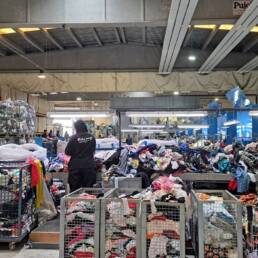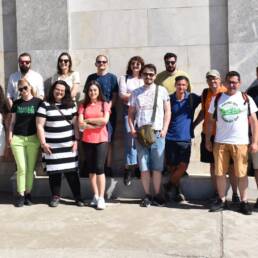Caritas Europa welcomes the Social Economy Action Plan (SE AP), launched by the European Commission on 9 December 2021.
The social economy presents an important alternative model of business aiming at the good of people and the planet rather than the maximisation of profits. The social economy, therefore, has a crucial role to play not only in Europe through the implementation of the European Pillar of Social Rights (EPSR) and its Action Plan, but also globally in the COVID-19 recovery and in the achievement of the 2030 Agenda and the Sustainable Development Goals (SDGs).
This policy paper provides Caritas Europa’s perspective on the Social Economy Action Plan and includes recommendations to the European Commission and the EU Member States for ensuring its implementation. Our analysis is based on the experiences of our members within and beyond Europe, who contribute to the social economy in their respective countries as well as in their activities overseas, through the provision of not-for-profit social services and the running of sustainable and inclusive businesses such as social economy enterprises, social businesses and cooperatives.
Over the next eight years, the social economy has the “potential to reshape the economy post-pandemic through inclusive and sustainable economic models leading to a fairer ecological, economic and social transformation”. However, this potential can only be fulfilled through targeted support for all actors at all levels. Whilst the Social Economy Action Plan contains many initiatives that will develop the potential of the social economy, such as the Council Recommendation on framework conditions and the introduction of social economy ambassadors, it is far from maximising its potential. The Social Economy Action Plan lacks new legislative measures, targeted initiatives to help underrepresented entrepreneurs other than youth, increased EU funding through grants and, most noticeably, detailed actions promoting social economy in partner countries.
Caritas Europa calls on Member States to not only implement the relevant initiatives in the Action Plan, but to go beyond them in promoting the social economy in Europe and globally, in partnership with all social economy stakeholders and civil society.
More information
Lucy Anns
Senior Policy and Advocacy Officer
Tel: +32 (0)2 235 26 52
Mob: 32 (0)492 505 860
lanns@caritas.eu




